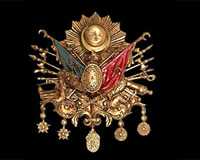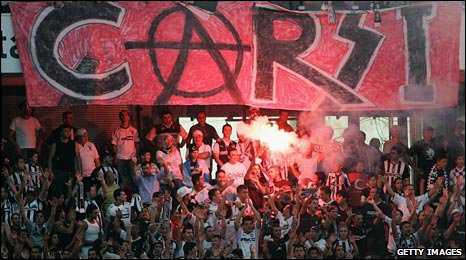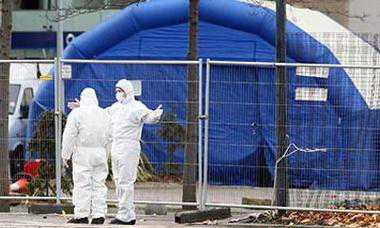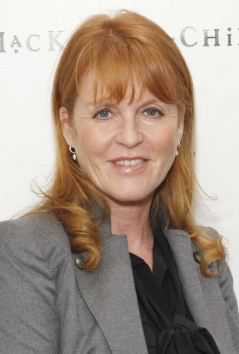By Delphine Strauss
Published: November 24 2009 02:00

In one of Istanbul’s artier quarters, a second-hand bookshop sells leaves torn from an old school atlas that depict the dominions of the Ottoman empire, all neatly labelled in a flowing script few Turks are now able to read.
The faded pages are a reminder of the heritage long rejected by the modern Turkish state as it sought to forge a new national identity and survive on the frontline of 20th-century geopolitics. Just as the social reforms of Mustafa Kemal Atatürk, founder of the secular republic, presented European culture as the standard of civilised behaviour, so foreign policy became firmly west-facing as Turkey sought shelter from the Soviet power on its border.
Now, however, the ruling Justice & Development (AK) party is reengaging with territories once ruled by the sultans, from the Balkans to Baghdad, in a drive to return Turkey to a place among the leadership of the Muslim world and the top ranks of international diplomacy.
Ahmet Davutoglu, foreign minister and architect of the policy, rejects the expansionist tag of “neo-Ottoman” bandied about by AK critics, preferring his well-used slogan, “zero problems with neighbours”. The US and the European Union praise this unobjectionable aim: to act as a force for stability in an unstable region.
Turkey has long mattered – as Nato ally, friend of Israel, EU applicant and energy route to the west. But its growing economic strength and diplomatic reach give it influence over some of the toughest issues facing Washington and other capitals: from frozen conflicts in the Caucasus to Iran’s nuclear ambitions to the threat of disintegration in Iraq. “We are neither surprised by nor disturbed by an activist Turkish agenda in the Middle East,” Philip Gordon, assistant secretary at the US state department, said in Ankara this month.
Yet the speed and bewildering scope of Turkey’s diplomatic endeavours have left both Turkish and western observers wondering whether it can juggle all its new interests. In a month of frenetic activity, Mr Davutoglu has staged a show of new friendship with Syria, ending visa restrictions on a border once patrolled by Turkish tanks; paid a high-profile visit to Iraq’s Kurdistan region, long shunned as a threat to Turkish unity; and signed a landmark deal to mend relations with Armenia. “Today we, children of the Ottomans, are here to show interest in the development of Mosul just as our ancestors showed centuries ago,” Zafer Caglayan, trade minister, said as he opened a consulate in the northern Iraqi city last month. Turkish diplomats claim credit, in the last year alone, for mediating between Israel and Syria, hosting talks between Afghanistan and Pakistan, and liaising with Sunni militants in Iraq.
But Recep Tayyip Erdogan, a prime minister who scorns diplomatic niceties, has shown the potential for new friendships to damage old ones.
Israel, which long valued Turkey as its only Muslim ally, was already infuriated by his frequent condemnations of its Gaza offensive. In October, Mr Erdogan compounded the insult not only by ejecting Israel from joint military exercises but by renewing his criticisms while in Tehran standing beside Mahmoud Ahmadi-Nejad, Iranian president. He caused consternation by saying Omar al-Bashir, Sudan’s war crimes-indicted president, could not as a Muslim be capable of genocide, nor could his actions be compared with Israel’s.
“Why is it that . . . a more prominent Turkey has, it seems, to come at the expense of its relations with Israel?” Robert Wexler, the US congressman, asked recently. US newspaper columnists went further, arguing that Ankara was undermining efforts to put pressure on Iran, or even that illiberal Islamists could no longer be trusted in Nato.
The virulence of the reactions reflects the value attached to Turkish support. Although no longer a bulwark against Soviet power, the threat of radical Islam has given Turkey new weight as a partner to channel western values to the Muslim world – and, by its western alliances, show that a “clash of civilisations” is not an inevitable result of religious difference.
Mr Davutoglu is touring European capitals this month, employing Ottoman-tinged rhetoric to persuade people that Turkey’s European vocation is unchanged. “You cannot understand the history of at least 15 European capitals without exploring the Ottoman archives,” he told an audience in Spain this week.
For Ankara, there is no question of changing orientation. “We have one face to the west and one to the east,” Mr Erdogan said last month as he signed trade deals in Tehran. Yet it is natural for Turkey to keep its options open, given the manifest reluctance in some EU countries to admit it to membership.
Ankara presents its new friendships as an asset to the EU, giving it a partner to promote western aims in the region. The European Commission’s latest report on Turkey’s accession process endorsed that view, with praise for its foreign policy. But Brussels also makes it clear that geostrategic importance cannot replace the domestic judicial, political and human rights reforms required to meet the criteria for membership.
Ankara’s focus, however, is on grander projects than box-ticking compliance with European legislation. A lack of enthusiasm for Herman van Rompuy’s appointment last week as president of the European Council reflects not just worries over his past opposition to Turkey’s candidacy but a preference for a heavyweight leader who would want Europe to play a bigger part on the world stage.
Ibrahim Kalin, Mr Erdogan’s chief foreign policy adviser, argues that Turkish activism is not a reaction to disappointments in the EU but simply “a fully rational attempt to seize new spaces of opportunity” – including the EU’s virtual absence from geopolitics.
Frictions with the EU may worsen, however, if Turkey engages in rivalry with countries used to seeing it as a junior partner. Western diplomats have noted Mr Davutoglu’s reluctance to support a French attempt at conciliation between Israel and Syria, for example, and say Mr Erdogan’s grandstanding in Iran “is definitely causing irritation”.Turkey thus needs to ascertain how much influence it has, what it is based on, and where new policies may upset old alliances.
Greater regional engagement is in part a response to changing balances of power. The coming American withdrawal from Iraq threatens a vacuum in which Turkey is one of the most plausible counterweights to Iranian influence – its credibility enhanced by its refusal to let the US use its territory to invade in 2003.
Ian Lesser from the Washington-based German Marshall Fund notes that ideas of a “Middle East for Middle Easterners” have been circulating for some time. “The crucial difference is that Turkey is now a much more significant actor in both economic and political terms, and Turkey’s Middle Eastern choices are, rightly or wrongly, seen as linked to the country’s own identity crisis.”
Foreign policy is certainly shaped by a growing affinity with the Islamic world, in a country where religious practice is becoming more visible and public opinion a greater force. Mr Erdogan’s comments on Gaza, or on Iran’s nuclear programme, appear both to recognise and reinforce views on the street: a survey by the GMF found that almost one-third of Turks – compared with only 5 per cent of Americans – would accept a nuclear-armed Iran if diplomacy failed.
Chief AK weapon in its drive eastwards, though, is not religion but trade. Exports to what the country’s official Turkstat agency classifies as the Near and Middle East account for almost 20 per cent of the total so far in 2009, up from 12.5 per cent in 2004. Turkish conglomerates are also stepping up investment in a region where their presence is considered benign.
“We don’t want a cultural bias against us,” says Sureyya Ciliv, chief executive of Turkcell, the mobile operator, which has interests in central Asia, Georgia and Moldova. Anadolu Efes, with almost 10 per cent of Russia’s beer market, wants to start producing non-alcoholic beer in Iran. Limak, a group centred on construction, is seeking projects in the Gulf, north Africa and Europe “east of Vienna”. “It’s a natural development,” says Ferruh Tunc, senior partner in Istanbul for KPMG, the consultancy. “Turkey’s position until the Soviet Union collapsed was unusual – it was like the last stop on a Tube line.”
Yet a previous initiative, reaching out to the Turkic-speaking world after the central Asian states won independence, left Turkey with excellent trade links but limited influence compared with China and Russia. Morton Abramowitz, a former US ambassador to Turkey, warns in this month’s Foreign Affairs journal that in the AKP’s latest diplomatic push as well, “despite the acclaim it showers on itself . . . symbolic achievements have far exceeded concrete ones”. More-over, Turkey’s opposition this spring to Anders Fogh Rasmussen’s appointment as Nato chief “alienated many Europeans by seeming to favour Muslim sensibilities over liberal democratic values”.
Can Ankara not reach out peacefully on all fronts, as it claims, without repercussions and a risk of overstretch? “You need very judicious fine tuning to be able to deliver this . . . The danger is of overplaying their hand,” says a western diplomat.
Mending fences with Armenia won praise in the west, for instance, but in Azerbaijan nationalists tore down the Turkish flag, viewing the move as a betrayal of old alliances. Baku may yet take revenge by demanding higher prices to supply gas.
The next test of Turkey’s new foreign policy will be Iran. The AKP claims its opposition to a nuclear-armed Iran is more effective because it delivers the message as a friend and trading partner. Turkey’s interests in trade with Iran are understood but Mr Erdogan may be pressed in Washington and Brussels to explain why he defends Iran’s nuclear programme as “peaceful and humanitarian” and lends the regime credibility rather than backing isolation.
Katinka Barysch of the Centre for European Reform, a London think-tank, says: “As a long-standing Nato member and a country negotiating for EU membership, Turkey is expected to align itself with the US and Europe – or at least not do anything that undermines the west’s political objectives in the Middle East. As a regional power, Turkey will want to act independently and avoid antagonising its neighbours. It is not clear how long Ankara will be able to avoid tough choices.”
Tricky legacy
Ottoman analogies are a double-edged weapon in Turkish politics. Those urging more rights for Kurdish citizens, for example, might recall the Ottomans’ multicultural tolerance. But some view such nostalgia as a challenge to the principles of Mustafa Kemal Atatürk’s republic, with its emphasis on a distinctly Turkish language, culture and identity. Halil Inalcik, a historian at Ankara’s Bilkent university, warns: “We are not Ottomans . . . We’re a nation state. That was an empire.”
‘There is progress but it’s uneven’
Turkey’s shift in foreign policy reflects its ambition to assume greater responsibility as a regional power. It may also reveal frustration over another ambition that has been delayed, if not thwarted: Istanbul’s bid to join the European Union.
Officially, the EU has been committed to full membership since 2005. Yet eight of the 34 negotiating “chapters” remain blocked as a result of Turkey’s long-running conflict with Cyprus. Meanwhile enthusiasm is faint in France and Germany, the bloc’s traditional centres of power. “There is progress but it’s very uneven,” one Commission official says.
The most recent update on negotiations came with the Commission’s mixed review of Turkey in last month’s annual enlargement report. Praise forits overtures to its Kurdish minority, and its agreement to reopen its border with Armenia, was tempered by concern over a fine imposed on one of Turkey’s leading media companies. Ostensibly for tax evasion, the $4bn (€2.7bn, £2.4bn) levy was likened by Olli Rehn, Europe’s enlargement commissioner, to “a political sanction”. European diplomats expressed surprise, too, at recent comments that seemed to lend support to Iran. Diplomats also say they do not expect breakthroughs from this week’s EU-Turkey ministerial meeting to discuss foreign affairs, which Mr Rehn will attend.
If it is accepted, Turkey will become the first predominantly Muslim EU member and also the most populous, giving it a sizeable number of seats in the parliament and threatening the power of Paris and Berlin. Nicolas Sarkozy, French president, displayed his opposition at an EU-US summit in Prague in May. After Barack Obama, on the eve of his first visit to Turkey, urged his hosts to “anchor” the country more firmly in Europe, Mr Sarkozy promptly suggested the US president mind his own business. Angela Merkel, German chancellor, has been more diplomatic,suggesting Istanbul be addressed instead as a “privileged partner”.
The creation of a full-time EU presidency and foreign policy chief seems unlikely to accelerate accession. In a 2004 speech, Herman Van Rompuy, the Belgian prime minister chosen as president, said Turkey “is not a part of Europe and will never be”. Those remarks proved awkward in the run-up to his selection last week but – as Istanbul no doubt noticed – they did not cost him the job.
Financial Times






